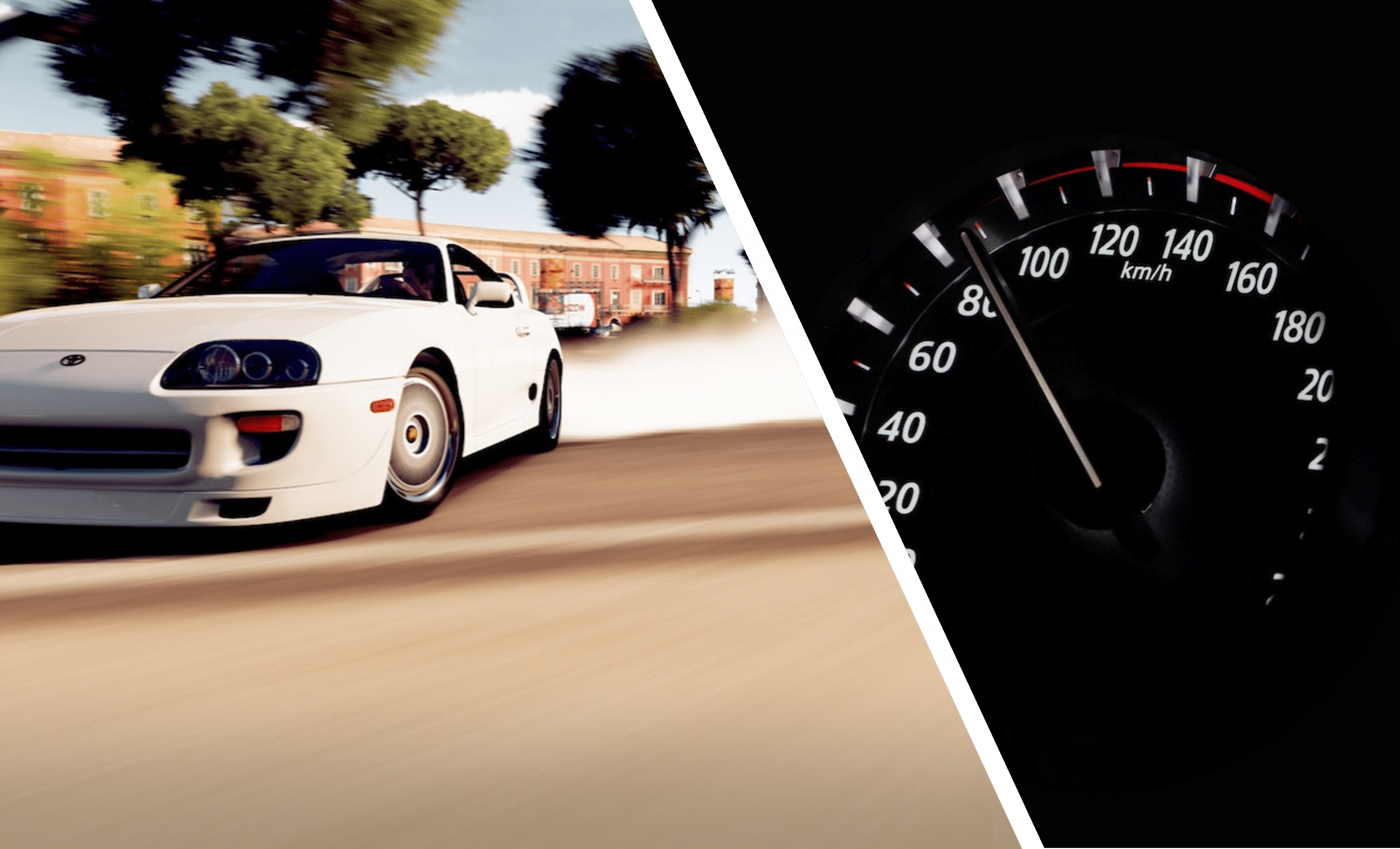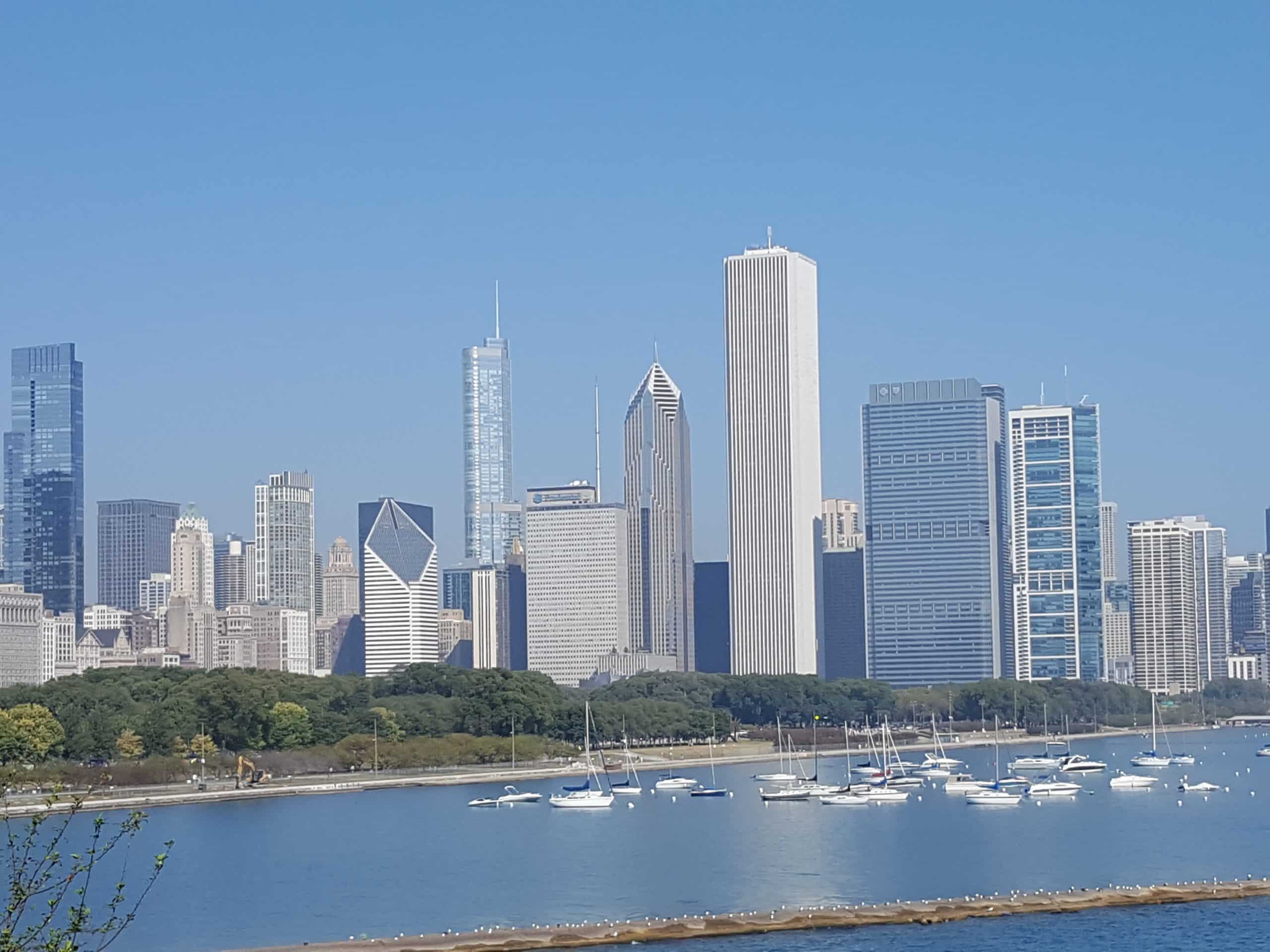
Answers to Frequently Asked Questions About Speeding
Speeding Ticket Lawyer Serving Cook, DuPage, DeKalb, Grundy, Kane, Kankakee, Kendall, LaSalle, Ogle, and Will Counties
Whether you are going 1 or 100 mph over the posted speed limit, speeding can result in a traffic ticket (also known as a citation). When police activate those red and blue lights behind us, we all hope that they would just let us off with a warning. But if that does not happen, then you need a good speeding ticket lawyer on your side. Traffic Lawyer Clyde Guilamo is a former prosecutor with over 11 years of experience, and he is ready to protect your driving privileges.
Everything You Need to Know about Illinois Speeding Laws – 625 ILCS 5/11-601
In Illinois, both teenagers and adults end up in adult court for speeding! And before you try to explain what happened, you should know that judges have heard all the possible reasons: “I was late for work, to pick up kids, or to get home.” Did you know that this is one of the worst things you could say to the police? I’ll explain why and answer many other questions you might have in this comprehensive guide of Illinois’ Speeding Laws (625 ILCS 5/11-601 and 625 ILCS 5/11-601.5):

Speeding
Table of Contents
What Is Speeding 625 ILCS 5/11-601?
Generally, people understand speeding means going faster that the posted speed limit. But did you know that you can receive a ticket for speeding even if you were under the posted limit? The law is found at 625 ILCS 5/11-601. It states, “No vehicle may be driven upon any highway of this State at a speed which is greater than is reasonable and proper with regard to traffic conditions and the use of the highway, or endangers the safety of any person or property.” Furthermore, “No person may drive a vehicle upon any highway of this State at a speed which is greater than the applicable statutory maximum speed limit[.]”
What does failure to reduce speed and driving too fast for conditions mean?
Generally, you must reduce your speed if necessary to avoid colliding with any person or vehicle on or entering the highway. Even if you are going below the posted limit, you might need to drive slower if any of these conditions apply:
- Pedestrians (i.e. jaywalkers, young kids, or persons with disabilities);
- Precipitation (i.e., rain, snow, or ice);
- Visibility issues (i.e., night, heavy rain, or fog);
- Hazardous terrain (i.e., hidden driveways, railroad crossings, or intersections with obstructive views);
- Obstructions (i.e., heavy traffic, disabled vehicles, or debris); and/or
- Road issues (i.e., gravel roadways, potholes, or roadkill).
Is Speeding a petty offense, misdemeanor, or felony?
Speeding from 1 to 25 mph over the speed limit is a petty offense. Petty offenses are violations of the law that are not punishable by jail. However, Speeding from 26 to 34 mph over the speed limit is a Class B misdemeanor. 625 ILCS 5/11-601.5(a). Class B misdemeanors are punishable by up to 6 months in the county jail. Speeding from 35 or more mph over the speed limit is a Class A misdemeanor. 625 ILCS 5/11-601.5(b). Class A misdemeanors are punishable by up to 364 days in the county jail. There is no “felony speeding” in the State of Illinois. (If the speeding incident harmed someone, then the State might charge you with some other offense like reckless driving or reckless homicide).
Can you get a sentence of probation?
Yes. If you get a speeding ticket, then you are eligible for a sentence of probation of up to 24 months on a class A or B Misdemeanor or up to 6 months on a petty offense. Not only are you eligible for probation, but Illinois law suggests it: “the court shall impose a sentence of probation or conditional discharge upon an offender unless, having regard to the nature and circumstance of the offense, and to the history, character and condition of the offender, the court is of the opinion that: his imprisonment or periodic imprisonment is necessary for the protection of the public; or probation or conditional discharge would deprecate the seriousness of the offender’s conduct and would be inconsistent with the ends of justice.” 730 ILCS 5/5-6-1(a).
Unfortunately, probation is a conviction that could impact your driving privileges. Thus, it’s much better to get supervision which is not a conviction and will not impact your driving privileges.
Am I eligible for Court Supervision?
Generally, a judge can sentence you to court supervision for a speeding ticket. 730 ILCS 5/5-6-1(c). To get supervision, you must either 1) come to court and request supervision, or 2) timely complete a court-approved defensive-driving class and pay the ticket amount. However, you would be ineligible for court supervision if you went 26 miles per hour or more in excess of the applicable maximum speed limit and:
- you have a prior supervision or conviction for misdemeanor speeding; or
- you were in “an urban district” (see 625 ILCS 5/1-214).
What other sentencing conditions can a judge order?
Here is a list of possible sentencing conditions that a judge can order you to do as a result of speeding:
- Take a defensive driving class;
- Do community services;
- Pay a fine;
- Obtain a license;
- Obtain insurance;
- Sit through court;
- Attend drug/alcohol classes;
- Complete a Mental Health evaluation; and/or
- Pay restitution to someone who was harmed.
How does speeding impact my driving privileges?
Individuals under the age of 21 will have their license suspended and/or revoked if they have two or more moving infractions in the span of 24 months (2 years). Whereas, adults over the age of 21 will have their license suspended and/or revoked if they have 3 or more moving infractions in the span of 1 year. Please note: only convictions (and not court supervision) affect your driving privileges, which is why traffic lawyers fight so hard to get supervision for first-time offenders. Since speeding is a moving violation, a conviction could result in you losing your driving privileges.
Points for speeding remain on your Driving Record for 7 years. If you were driving over the posted limit by:
- 1 to 10 MPH, then 5 points will be added to your driving record.
- 11 to 14 MPH, then 15 points will be added to your driving record.
- 15 to 25 MPH, then 20 points will be added to your driving record.
- More than 25 MPH, then 50 points will be added to your driving record.
- Speeding too fast for conditions / failure to reduce speed to avoid an accident, then 10 points will be added to your driving record. (92 Ill. Adm. Code 1040.20(a)).
The duration of suspension or revocation depends on how many points you have accumulated at the time of the suspension. So, if you are and adult over the age of 21 and have had 3 moving violations within 1 year with no prior suspensions, then the duration of the suspension will be:
- 0 through 14 points: no suspension
- 15 through 44 points: 2 month suspension
- 45 through 74 points: 3 month suspension
- 75 through 89 points: 6 month suspension
- 90 through 99 points: 9 month suspension
- 100 through 109 points: 12 month suspension
- 110 or more points: Driver’s license revocation (92 Ill. Adm. Code 1040.30(a)).
If you are under the age of 21 and have 2 or more moving violations within 1 year with no prior suspensions, then the duration of the suspension:
- 0 through 9 points: no suspension
- 10 through 34 points: 1 month suspension
- 35 through 49 points: 3 month suspension
- 50 through 64 points: 6 month suspension
- 65 through 79 points: 12 month suspension
- 80 or more points: Driver’s license revocation (92 Ill. Adm. Code 1040.29(a)).
Can I expunge my speeding case?
You cannot expunge a petty speeding ticket. You can, however, expunge a misdemeanor speeding ticket if it resulted in supervision. 20 ILCS 2630/5.2(a)(3)(B). It is important to seek an expungement if you received supervision on a misdemeanor speeding ticket because you cannot receive supervision again on a subsequent misdemeanor violation. Thus, you’ll only be eligible to receive supervision if you expunge the first ticket.
What evidence do police use in speeding cases?
First and foremost, “do you know why I stopped you” is an attempt by the officer to get an admission out of you. If you say, “because I was going too fast” then that admission can be used against you in court. Unknowingly, many people waive their right against self-incrimination by answering this question. Do not admit to violating the law. #notlegaladvice #commonsense. Specifically, here are questions that police ask you that you shouldn’t answer because it may lead to a confession:
- Why were you going so fast;
- What’s the emergency;
- Are you running late to something;
- Is everything okay because you were going very fast;
- How fast do you think you were going;
- If you were me, and you saw someone going as fast as you were, would you have stopped your car too?
In addition to confessions, here are other things police use against people in speeding cases:
- Radar (an instrument that uses radio waves to determine speed);
- Tuning forks (an item that vibrates at a specific speed to test if the radar reads its speed correctly)
- Lidar (an instrument that uses light to determine speed);
- Pacing (an officer driving at a specific speed over time to estimate how fast you are going);
- Dash cameras (a camera mounted on top of the officer’s dash which may show your vehicle passing by);
- Body cameras (a camera worn by the officer that may capture your admission to speeding);
- Speed cameras (a stationary camera that monitors traffic using lidar or radar);
- Witness observation (a person or officer who says that you were going too fast); and/or
- Crash/Damage photos (images of a crash used to argue that you were going too fast).
Do I have to go to court?
Even though you do not have to attend court on petty speeding cases, you probably should go to court so that you don’t miss out on certain benefits. For example, the judge could enter a conviction against you if you fail to attend court. This is known as an ex-parte judgment, and it can have a negative impact on your driver’s license. The only way to avoid this is by 1) coming to court, or 2) timely completing a court-approved defensive driving course and paying the fine.
If you drove 26 mph or over the speed limit, then you must attend court! These cases are misdemeanors where a judge could sentence you to jail time. If you fail to appear, then the judge could issue a warrant for your arrest.
What percentage of your sentence will you serve on a speeding ticket 730 ILCS 130/3?
If the judge is thinking about sending you to jail, then you should know that speeding is a 50% sentence. Illinois Truth-In-Sentencing law states: “The prisoner shall receive one day of good behavior allowance for each day of service of sentence in the county jail[.]” 730 ILCS 130/3. You will not accumulate good time credit, however, if the judge sentences you to periodic imprisonment. This is really important when deciding whether you want to serve jail straight through or only on the weekends.
How To Keep a Speeding Case Off Your Record
There are several ways to keep a conviction for this offense off your criminal record. Here are some of the ways:
Beating a speeding ticket at trial
Challenge the radar or lidar result.
Devices that determine your speed must be properly calibrated to be accurate. Stated differently, the State must make sure that the number shown on the device is actually the speed that your car was moving. Your traffic lawyer should ask for the maintenance records of the police radar gun. If you find out that a certified technician has not calibrated the device in a long time, then there may be reasonable doubt as to the accuracy of the device.
Another way to challenge the speed detector result is by showing that it was improperly operated. Officers attend training and become certified operators of lidar or radar devices. When preparing for trial, your traffic ticket lawyer should also request the officer’s certification. If the officer let his certification lapse, then you might raise enough doubt to win the case.
Please note: Even certified officers can operate speed detectors incorrectly. Most cars are not driving straight toward the officer. Therefore, the officer might move or swivel the radar gun as your vehicle is in motion. The proper operation of a lidar or radar gun, however, requires that the device be held still. In cases where the officer is not stationed waiting for speeders, where they say that they just happened to pass by someone who they “thought” was going too fast, you may want to argue movement of the radar gun operator creates doubt as to the accuracy of the speed detector.
Other ways to win at trial
Here are other issues that you can argue to win the case:
- Fog, rain, and snow can all affect the accuracy of radar/lidar devices;
- Interference from radios, power lines, neon lights;
- The device picked up the speed of another vehicle that was close to your car;
- The officer took your speed while he or she was also in motion.
The one thing that never wins a speeding case: I know I was wrong but . . . (excuse) . . . Your reason for speeding is something that you should save for your sentencing hearing, not for trial. At trial, you should be arguing why you are not guilty, and not that you are guilty but need a break!
Winning a case with a motion
If the biggest piece of evidence against you was radar/lidar, and you uncover through discovery that the device was not properly maintained or calibrated, then a motion to suppress might be the solution. A traffic ticket lawyer can challenge the admissibility of the radar result. If the Court finds that it was not properly maintained, then the Court can prevent the State from using its result as evidence. This could result in a dismissal of your case.
How to avoid a conviction through Diversion or Deferred Prosecution Programs?
Many counties have diversion or deferred prosecution programs which are alternatives to the criminal justice system. Essentially, you and the prosecutor enter into an agreement that if you comply with the terms of the program (which usually include treatment, classes, and/or community service) the case that brought you to court would be dismissed. If the prosecutor is offering a diversion program, accepting and complying with the program is almost always the best possible result. A typical diversion program would be for you to complete a defensive driving course.
How to avoid a conviction through a Plea Agreement (Reduction on the Charge)?
Prosecutors sometimes enter plea agreements with defendant where they would reduce these cases from a misdemeanor to petty speeding. This plea agreement is a good resolution because 1) you are no longer at risk of jail time, 2) you are eligible for supervision on this and any subsequent offense, and/or 3) less than half of the points are added to your driving record which can substantially reduce the duration of your suspension.
If you are a CDL (Commercial Driver’s License) holder, then a speeding ticket may cause you to lose your CDL and your ability to provide for your family. Given the huge consequences that moving infractions have on CDL holders, speeding ticket lawyers argue for the State to amend the charges to a non-moving violation. That can be illegal tinting or illegal parking.
Other Traffic Guides
If you are looking for information about:
- DUI cases, then check out our guide to DUI cases in Illinois.
- Driving While License is Suspended or Revoked cases, then check out guide to Driving While License Suspended cases in Illinois.
- Possession of a Controlled Substance cases, then check out our guide to Possession cases in Illinois.
- Possession of Cannabis cases, then check out our guide to Cannabis Possession cases in Illinois.
Hire Illinois Speeding Ticket Lawyer Clyde Guilamo
Lastly, I hope this guide of free legal education was helpful. #notlegaladvice. If you found this article helpful, consider giving us a review on Google! If you have specific questions about your case, then call me today for a free consultation:


